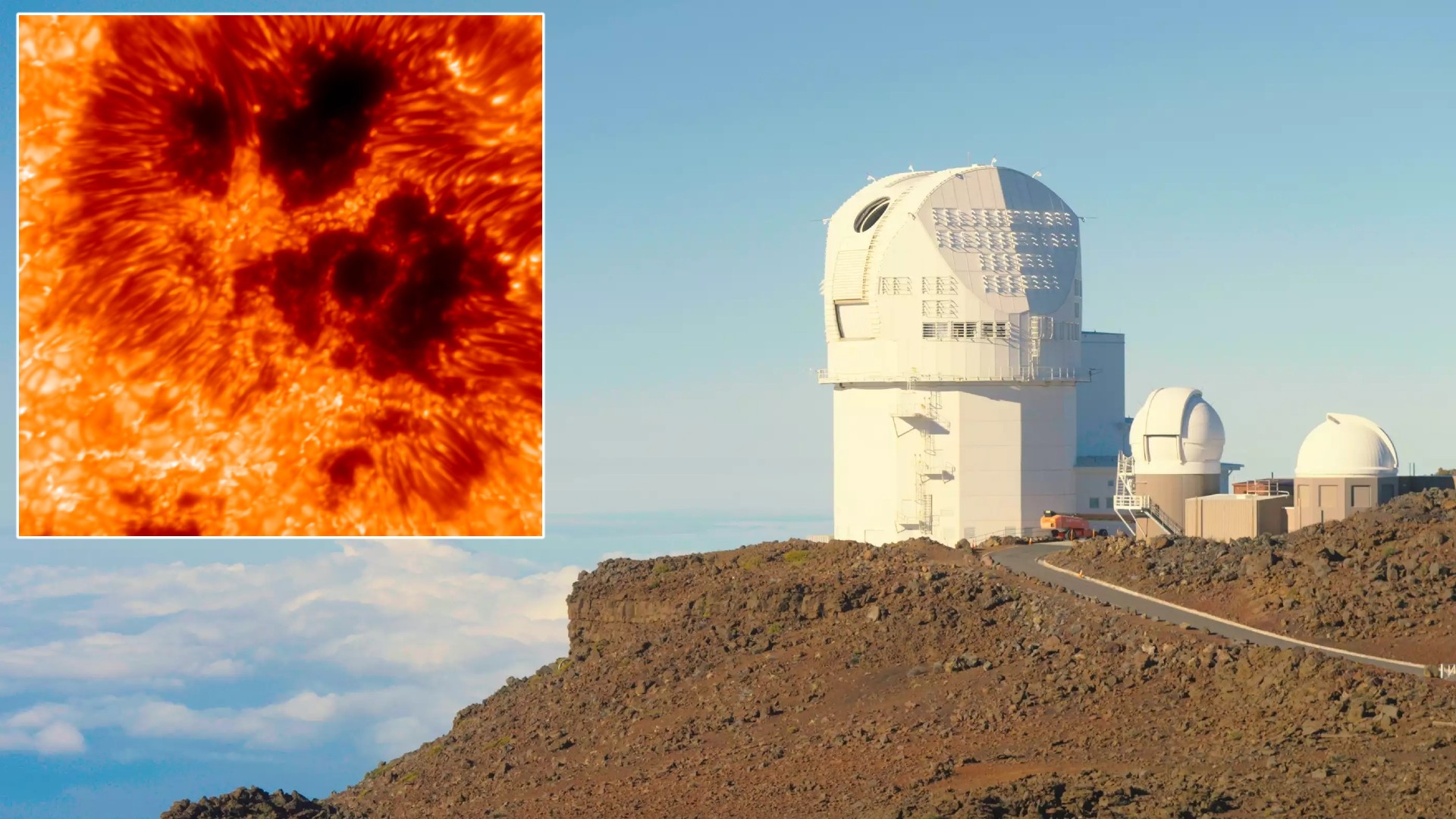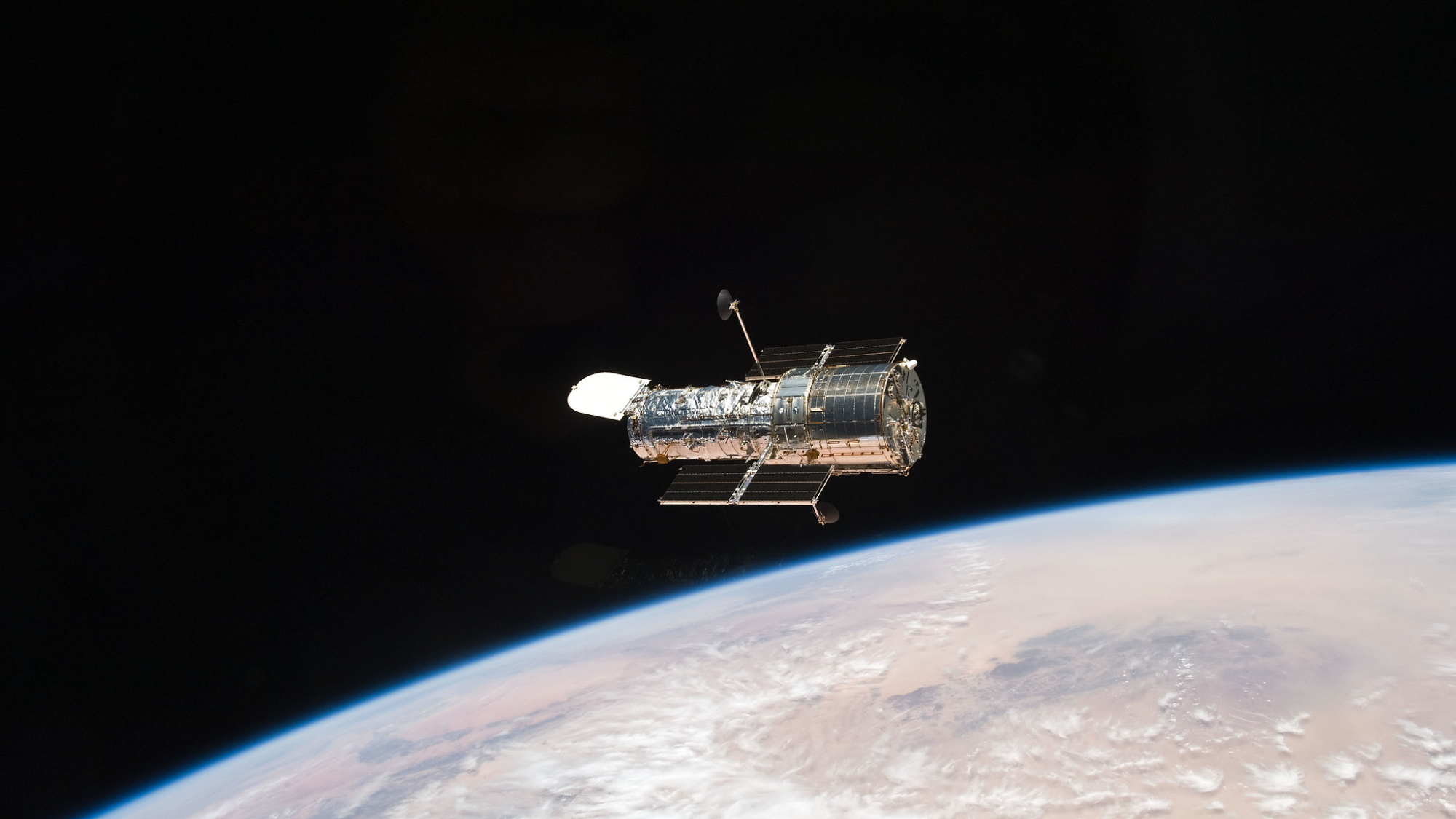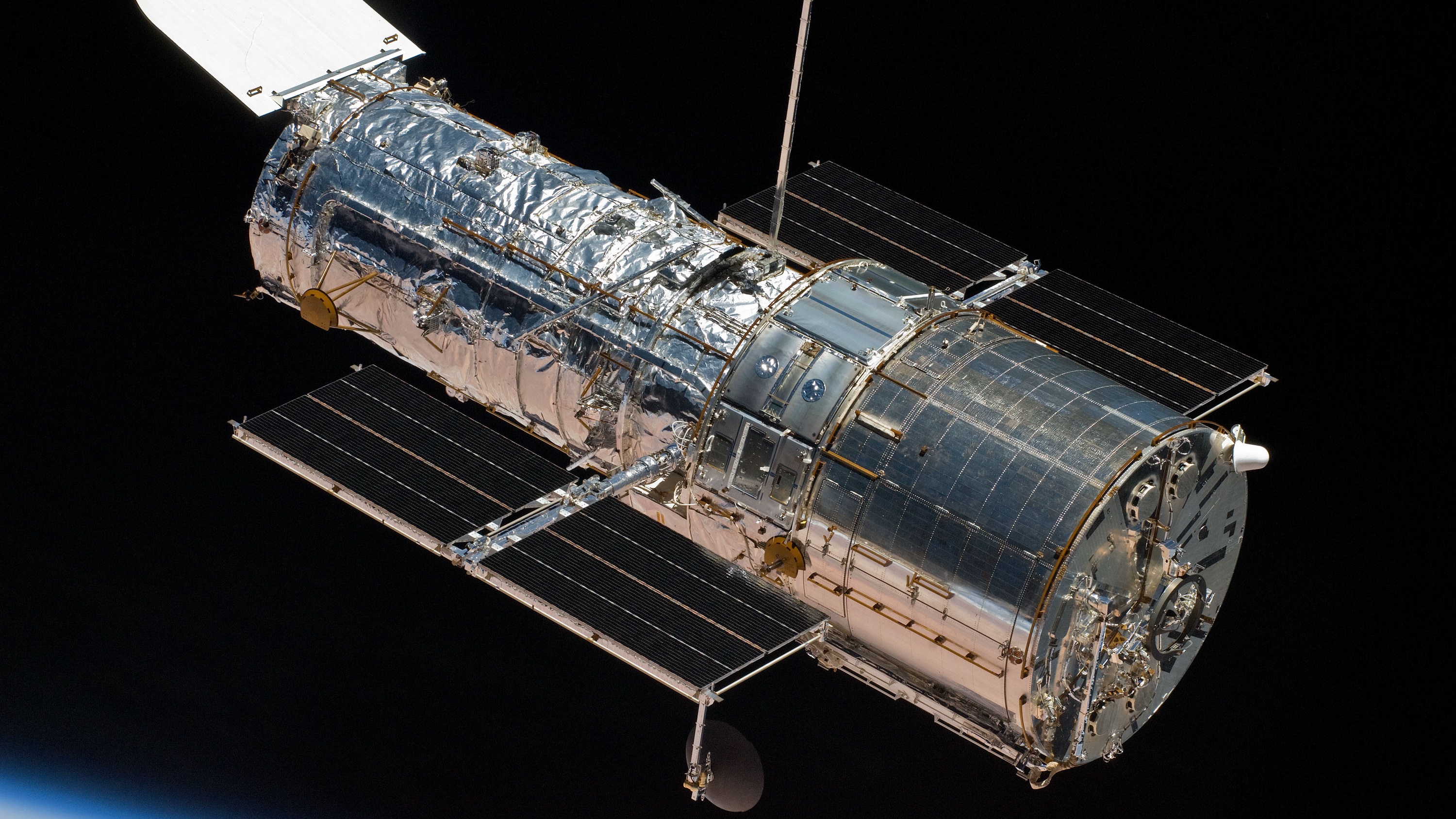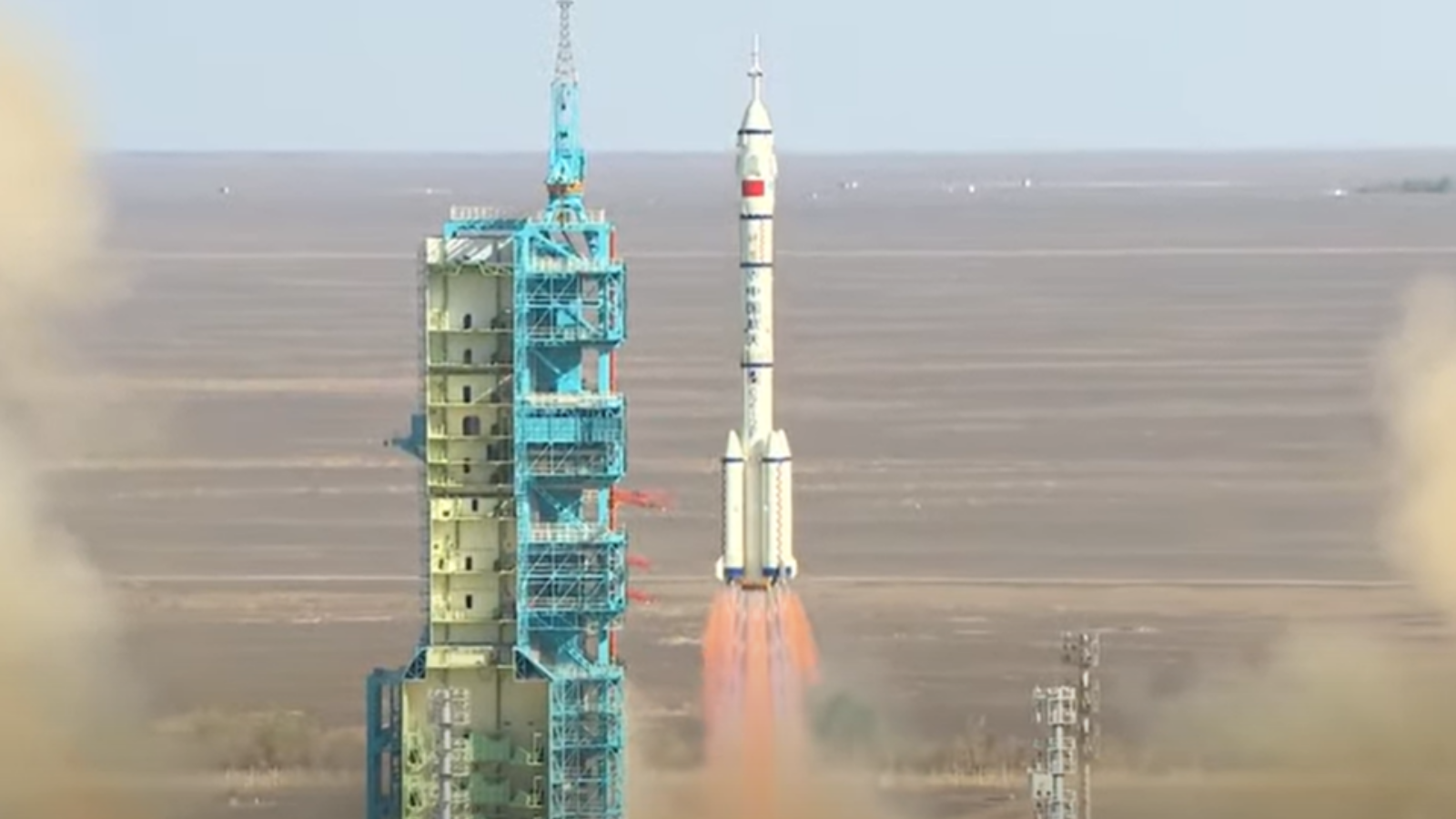Space Image of the Day Gallery (September 2016)
Image of the Day Archives
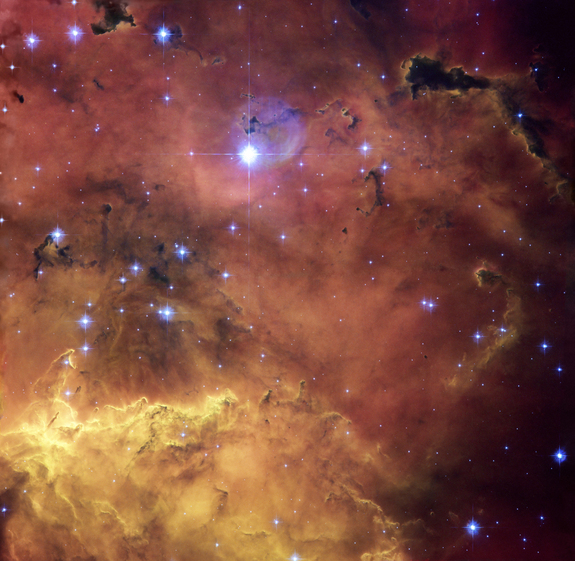
For older Image of the Day pictures, please visit the Image of the Day archives. Pictured: NGC 2467.
Spacewalk 37
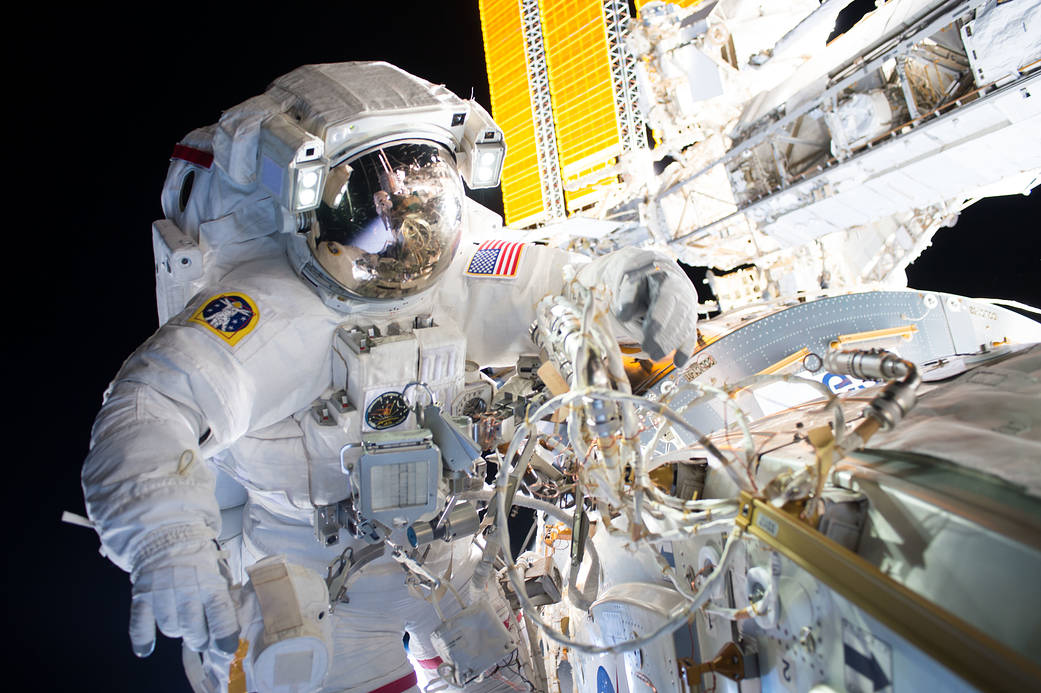
Thursday, September 1, 2016: NASA astronauts Jeff Williams and Kate Rubins venture outside the International Space Station again today (Sept. 1) to retract a thermal control radiator and install at least one new high-definition television camera. This is the astronauts' second spacewalk together. On Aug. 19 they successfully installed the first International Docking Adapter, which will allow future spacecraft to dock directly with the U.S. segment of the space station. Watch today's spacewalk live on Space.com. — Samantha Mathewson
Ceres' Icy Volcano
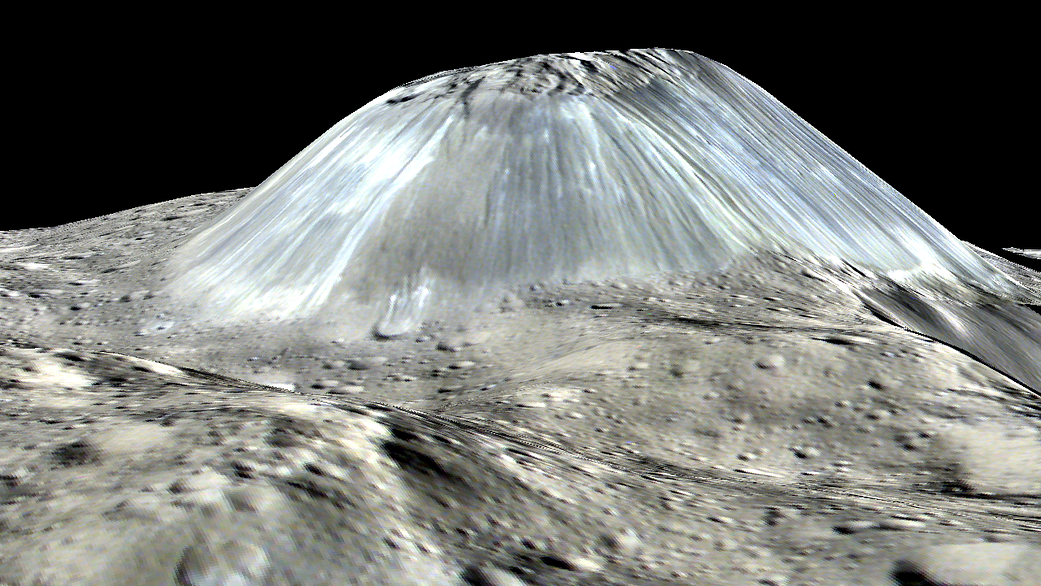
Friday, September 2, 2016: Data from NASA's Ceres-orbiting Dawn spacecraft suggests that "ice volcanoes" have erupted on the dwarf planet in the recent past. This image shows a side view of Ahuna Mons, which is 2.5 miles tall and 10.5 miles wide (4 by 17 kilometers). Ahuna Mons has a dome shape that resembles that of mountains created on Earth by volcanism. However, unlike volcanoes on Earth, Ahuna Mons was created by a volcano spewing cold, molten ice rather than hot, liquid rock. Read more about the ice volcanoes on Ceres here. — Samantha Mathewson
Galaxy Cluster MACS J0717
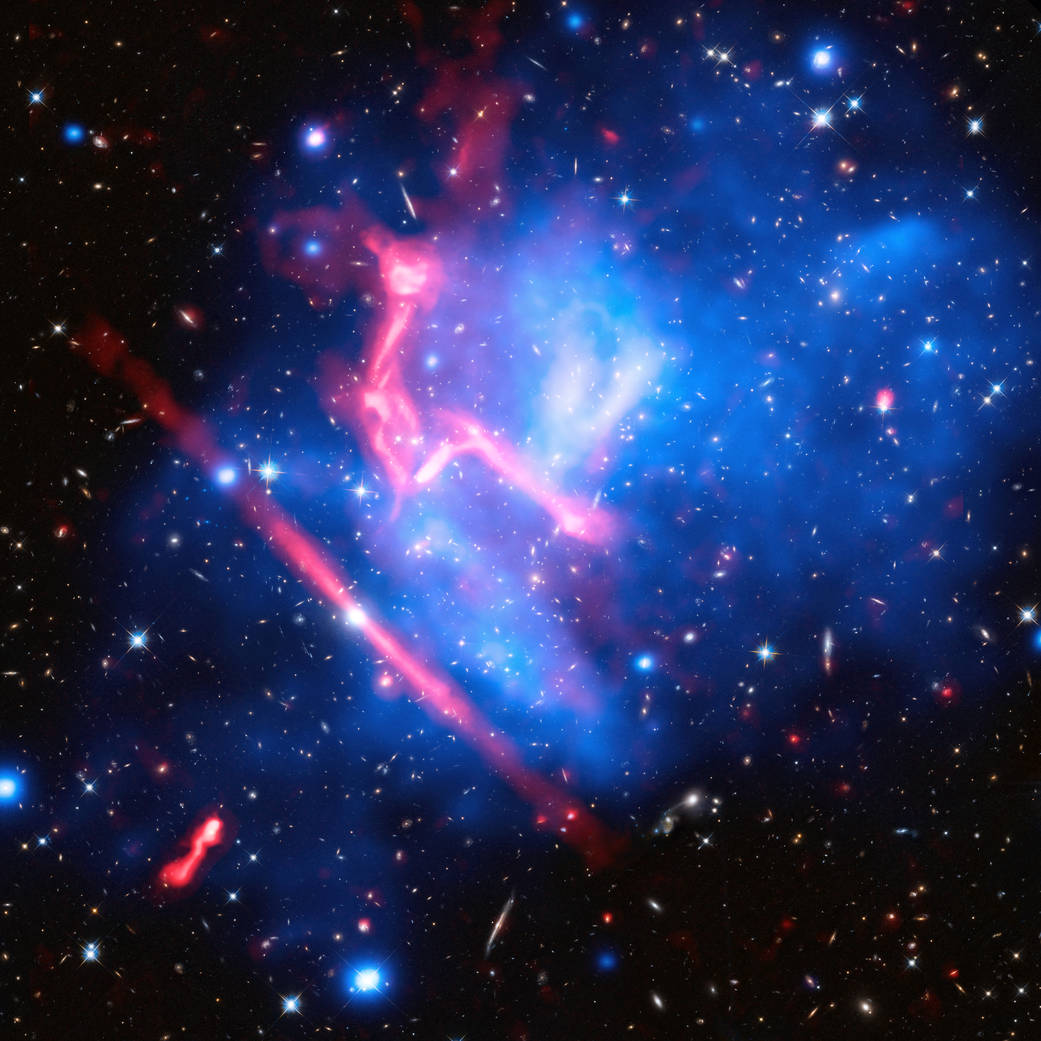
Monday, September 5, 2016: Pictured here is one of the most complex and distorted galaxy clusters known in the universe. This galaxy cluster is named MACS J0717 and is located about 5.4 billion light years away from Earth. MACS J0717 is the site of a collision between four clusters, which explains its complex and distorted structure. — Samantha Mathewson
A Surge in Saturn's Rings
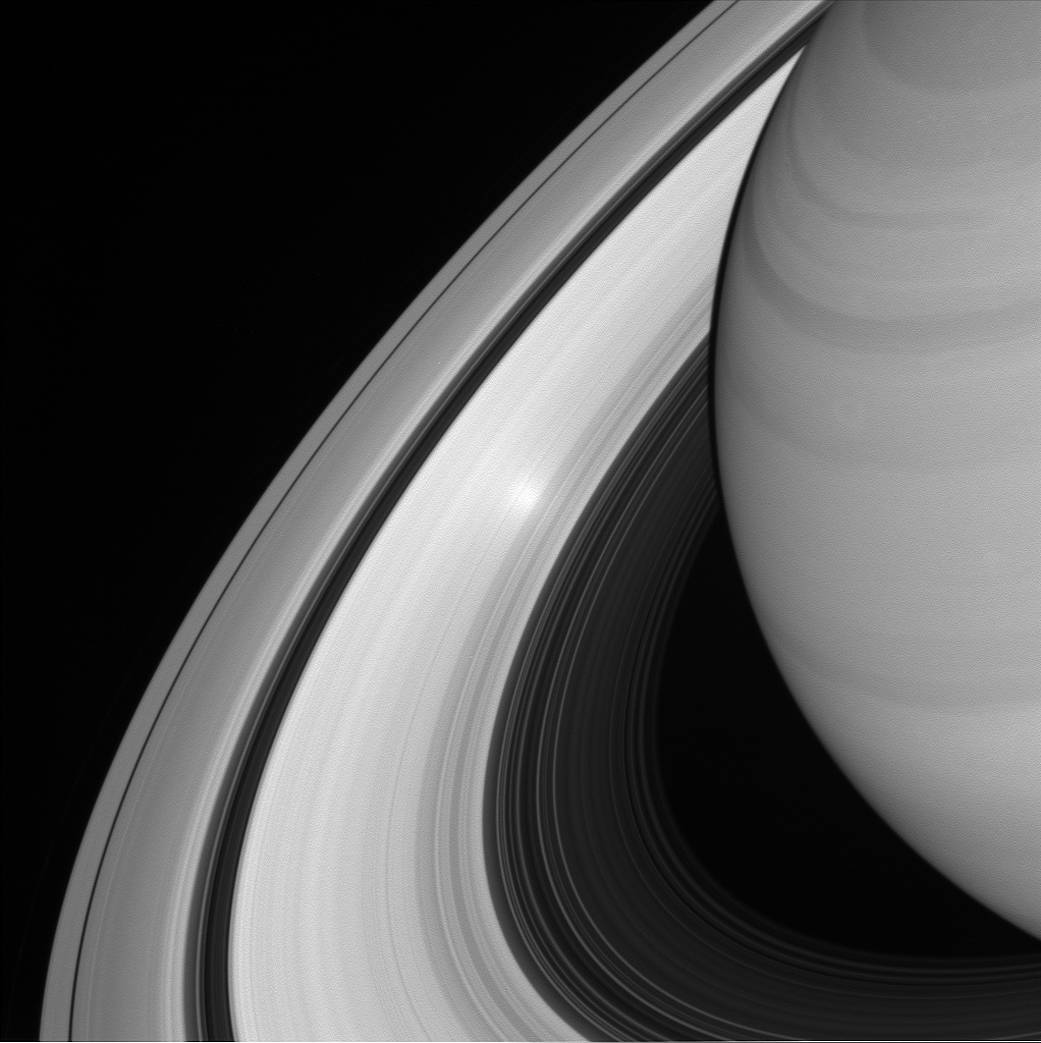
Tuesday, September 6, 2016: NASA Cassini spacecraft captured this image of a bright spot on Saturn's B ring. This glowing effect is an example of what is known as an "opposition surge," which occurs when the sun is directly behind the observer — in this case, Cassini — looking toward the rings. The "opposition surge" makes an area on the rings appear extra bright. — Samantha Mathewson
Jupiter's South Pole
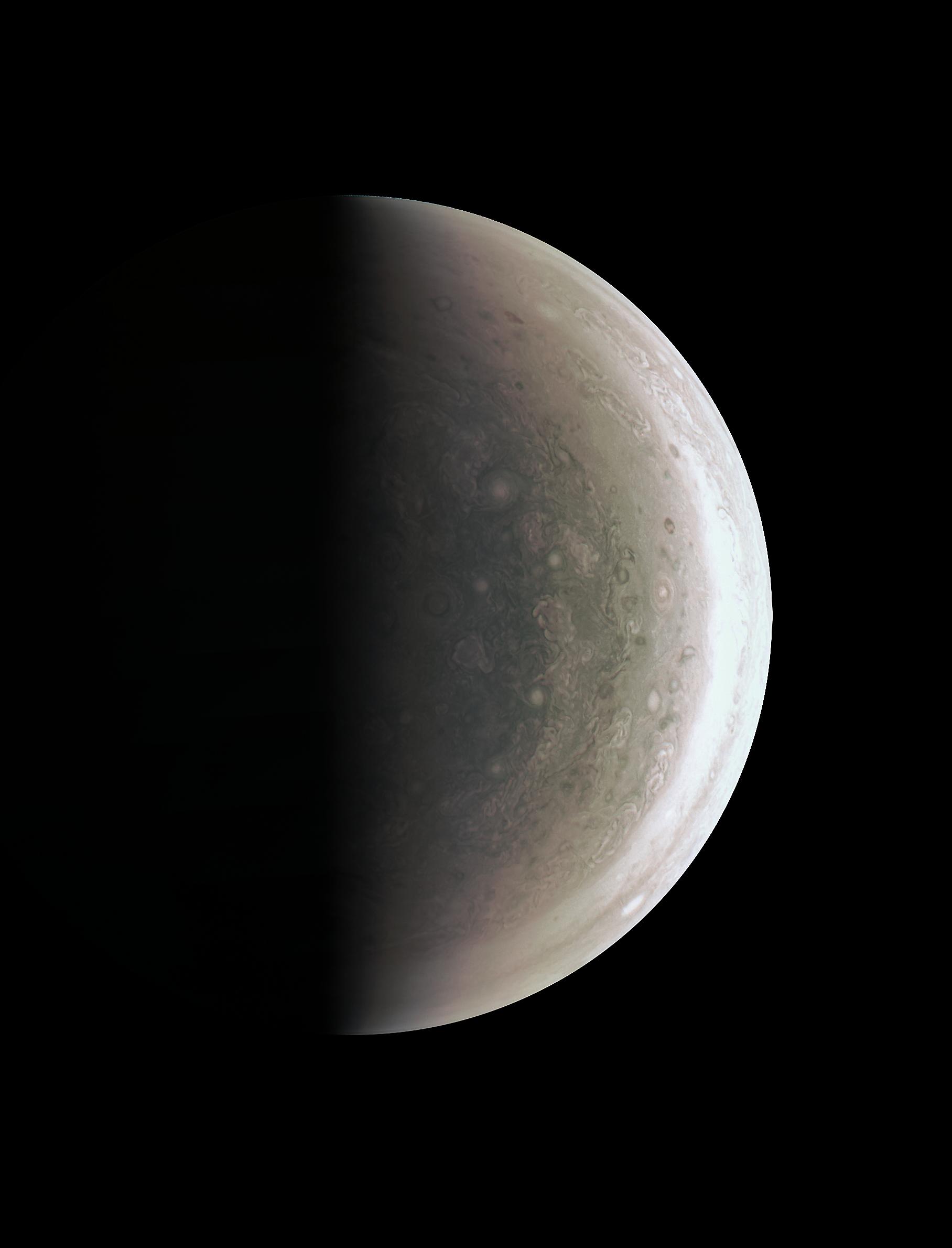
Wednesday, September 7, 2016: This image was captured by NASA's Juno spacecraft orbiting Jupiter. This is photo offers a never-before-seen view of the gas giant's south pole region. This photo was taken on the view on August 27, 2016, when Juno was approximately 58,700 miles (94,500 kilometers) above the planet's polar region, NASA officials said. — Samantha Mathewson
Safe Return Home
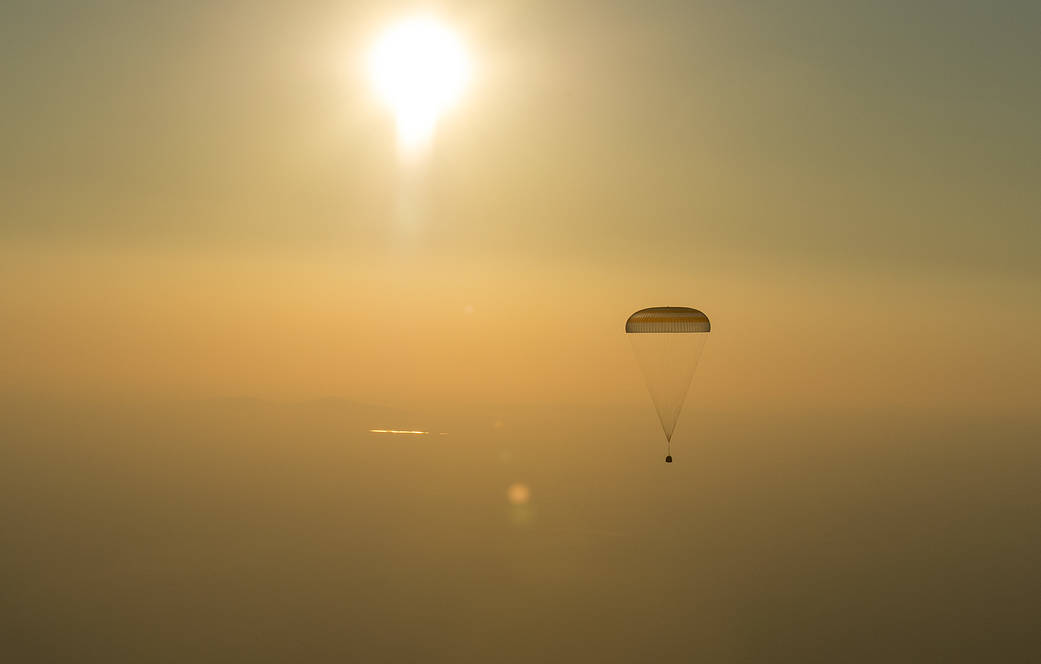
Thursday, September 8, 2016:NASA astronaut and Expedition 48 Commander Jeff Williams and two Russian cosmonauts, Alexey Ovchinin and Oleg Skripochka, safely returned to Earth on Sept. 6 at 9:13 p.m. EDT (0113 GMT or 7:13 a.m. local time, Sept. 7). Their Soyuz TMA-20M space vehicle landed safely in a remote area near the town of Zhezkazgan, Kazakhstan. Williams returned home with a new American record of 534 days spent in space. — Samantha Mathewson
Get the Space.com Newsletter
Breaking space news, the latest updates on rocket launches, skywatching events and more!
Old Soul Star
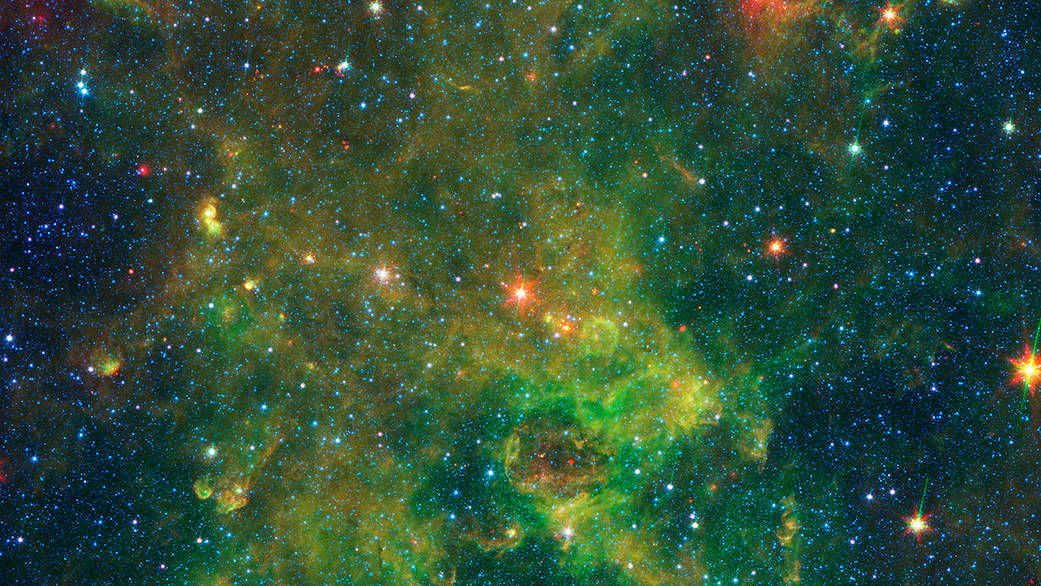
Friday, September 9, 2016: A star known as IRAS 19312+1950 is actually much younger than it looks. Scientists recently found that this bright object lies within a large, chemically rich cloud of material, which suggests it exhibits both very young and very old characteristics. Surprisingly, this protostar was found in an area that was not previously thought to be a stellar nursery, where stars are born. This image was taken by NASA's Spitzer Space Telescope. — Samantha Mathewson
Aurora View from Space
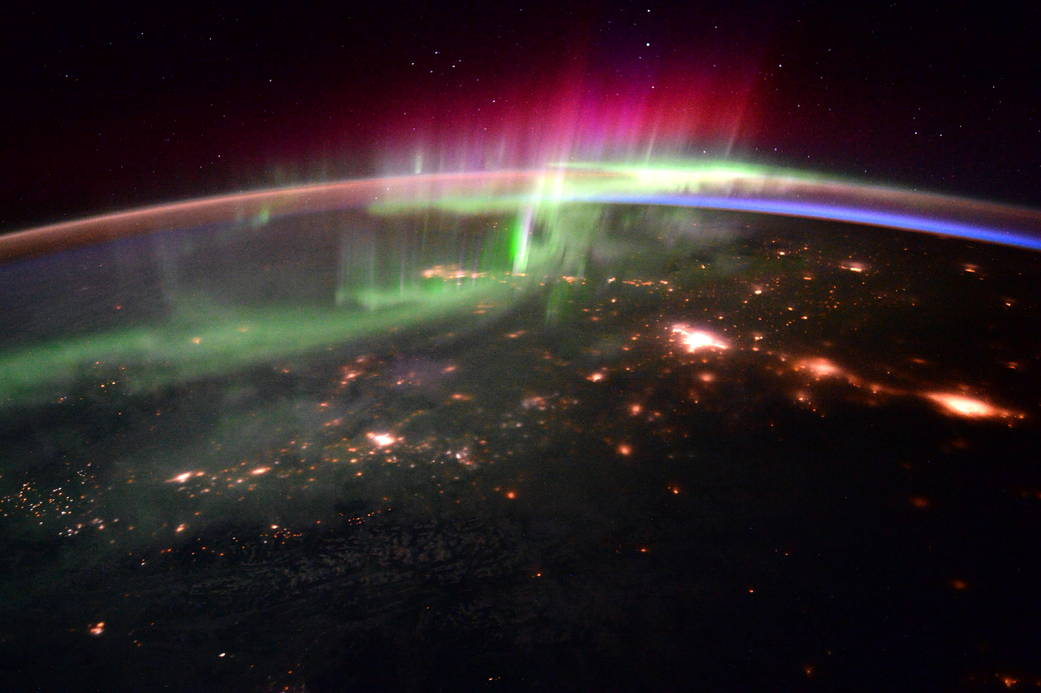
Monday, September 12, 2016:This is a view of a beautiful aurora as seen from the International Space Station. The bright pink, green and blue lights of the aurora dance over the Pacific Northwest, creating not only a spectacular light show for those on Earth, but for those on the space station, too. NASA astronaut Scott Kelly and ESA astronaut Tim Peake shared a series of aurora photographs on Twitter on Jan. 20 that were taken during their stay on the orbiting lab. Among them was this photo. — Samantha Mathewson
Stacked Rock Layers on Mars
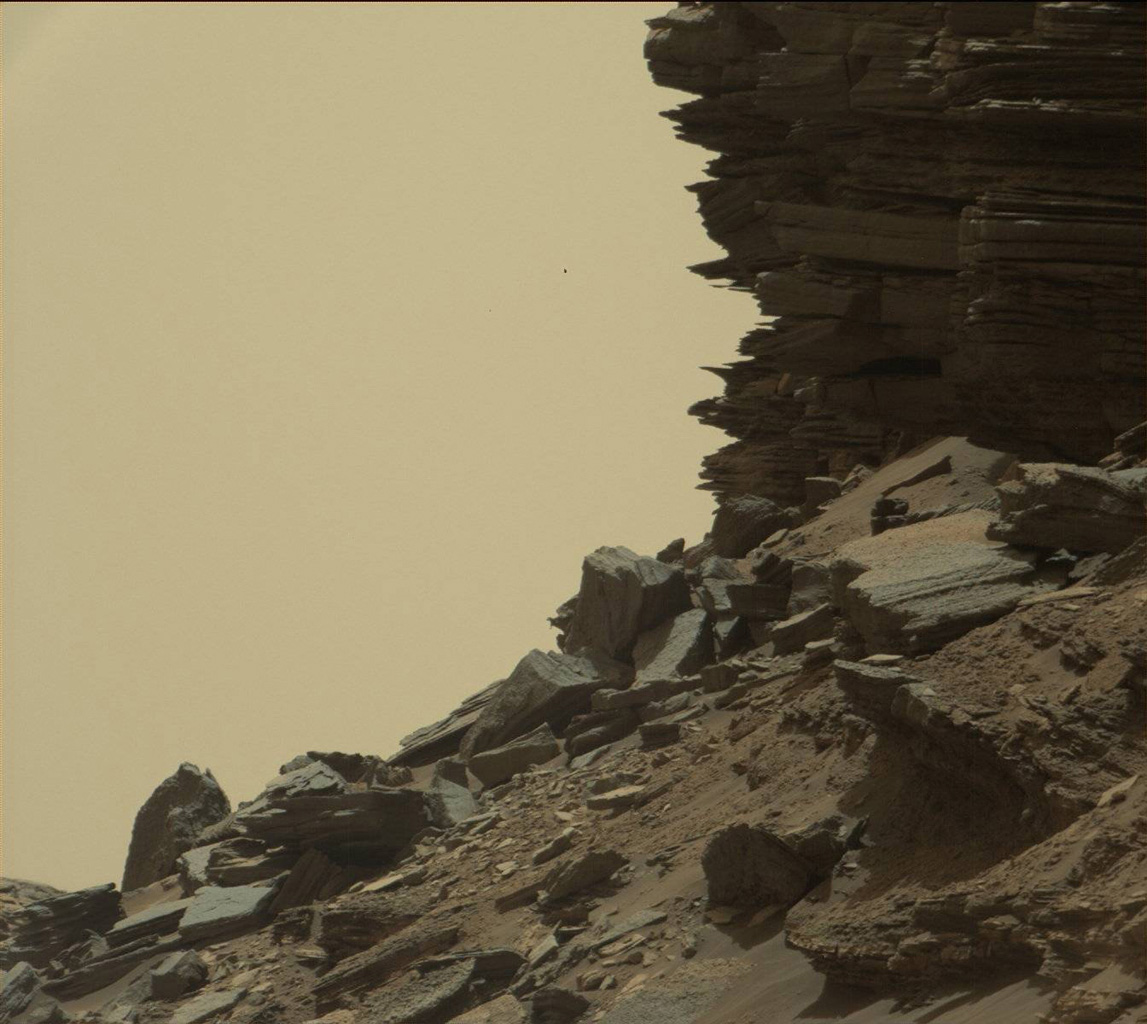
Tuesday, September 13, 2016: NASA's Mars Science Laboratory, also known as the Curiosity Rover, snapped this photo of an Earth-like outcrop on a Martian hillside last Thursday (Sept. 8). The area where Curiosity took this photo is called Murray Buttes. It lies at the base of Mount Sharp, a 3.4-mile-high (5.5 kilometers) peak located in the center of a giant crater. These rock formations, which resemble Arizona's Grand Canyon, contain remnants of ancient sandstone and jagged rock layers of rock that scientists refer to as "cross-bedding." — Hanneke Weitering
Stingray Nebula Star Reborn
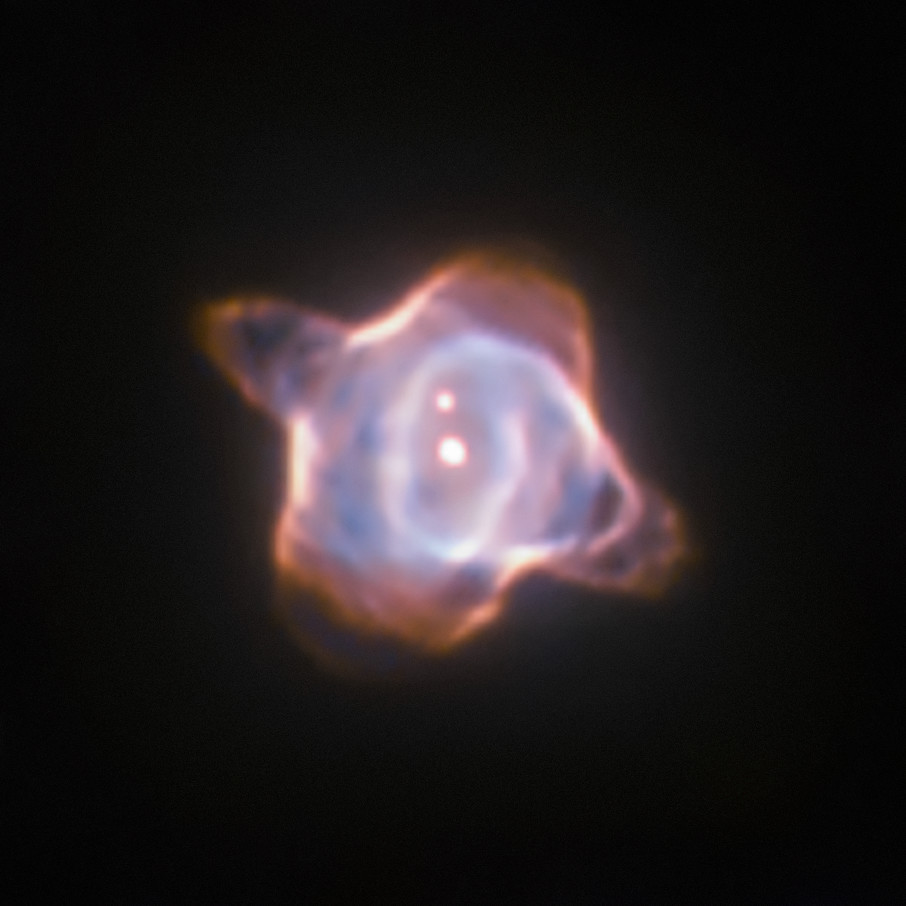
Wednesday, September 14, 2016: For the first time ever, astronomers have witnessed a star being reborn in images from the Hubble Space Telescope. Located 2,700 light years away in the Stingray Nebula, the star known as SAO 244567 grew increasingly hotter until it doubled its temperature. But now the star is cooling off and settling into an earlier stage of stellar evolution. Astronomers watched this stellar rebirth unfold over the course of 45 years. This image was taken by Hubble's Wide Field and Planetary Camera 2 (WFPC2) in 1998. — Hanneke Weitering
Join our Space Forums to keep talking space on the latest missions, night sky and more! And if you have a news tip, correction or comment, let us know at: community@space.com.

Space.com is the premier source of space exploration, innovation and astronomy news, chronicling (and celebrating) humanity's ongoing expansion across the final frontier. Originally founded in 1999, Space.com is, and always has been, the passion of writers and editors who are space fans and also trained journalists. Our current news team consists of Editor-in-Chief Tariq Malik; Editor Hanneke Weitering, Senior Space Writer Mike Wall; Senior Writer Meghan Bartels; Senior Writer Chelsea Gohd, Senior Writer Tereza Pultarova and Staff Writer Alexander Cox, focusing on e-commerce. Senior Producer Steve Spaleta oversees our space videos, with Diana Whitcroft as our Social Media Editor.
